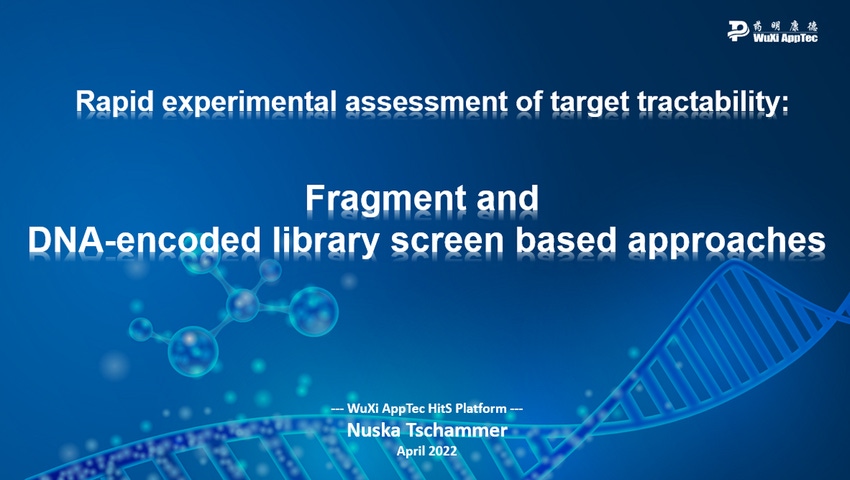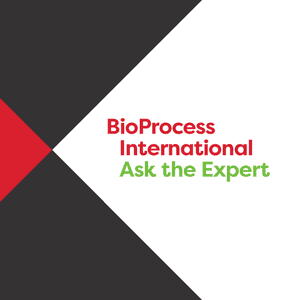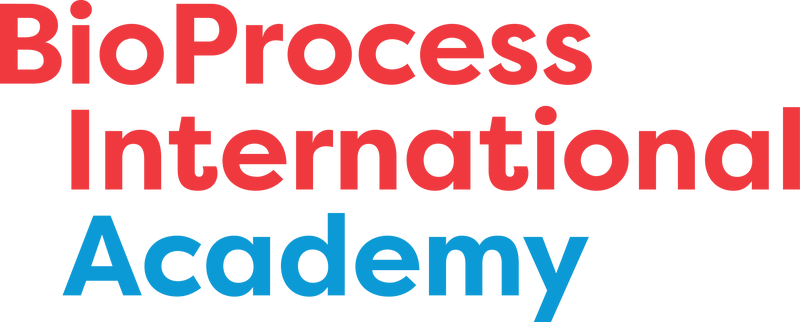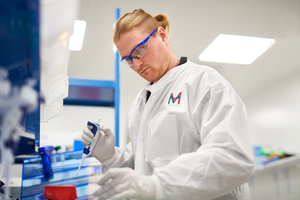- Sponsored Content
- Upstream & Downstream Processing
Drug Discovery: Screening Approaches for Rapid Assessment of Target Tractability
April 13, 2022

Date: Apr 13, 2022
Duration: 20 Min
Sponsored by WuXi AppTec
This webcast features: Nuska Tschammer, Head of DEL Lab Operations, WuXi AppTec.
In recent years, increasing use of genetic, transcriptional and knock-out technologies led to numerous biologically validated targets, many of them in the category “first-in-class”. The core purpose of experimentally based tractability assessments is to evaluate if the target of interest can be modulated by a chemical entity.
In the past, extensive HTS screening efforts were initiated to find starting points for the small molecule drug discovery.
Today, direct binding biophysical assays (e.g., MST, SPR, MS, X-ray) in conjunction with a fragment screen, and/or an affinity selection from a DNA-encoded library (DEL) are recommended technologies for rapid evaluation of target tractability.
While fragment screen produces hits of low molecular weight and weak affinity, which need further chemical optimization, DEL screens typically generate a series of drug-like molecules, which can be practically instantly used as chemical probes. Chemical probes are essential tools to clarify the tractability and translation of a given therapeutic target into the successful drug discovery program.
Novel modalities such as the screening of covalent molecules, utilization of novel biophysical methods, or use of machine learning, may expand the percentage of tractable targets. Some case studies will be presented.
Just fill out the form below to watch the recorded webcast now.
About the Author(s)
You May Also Like





